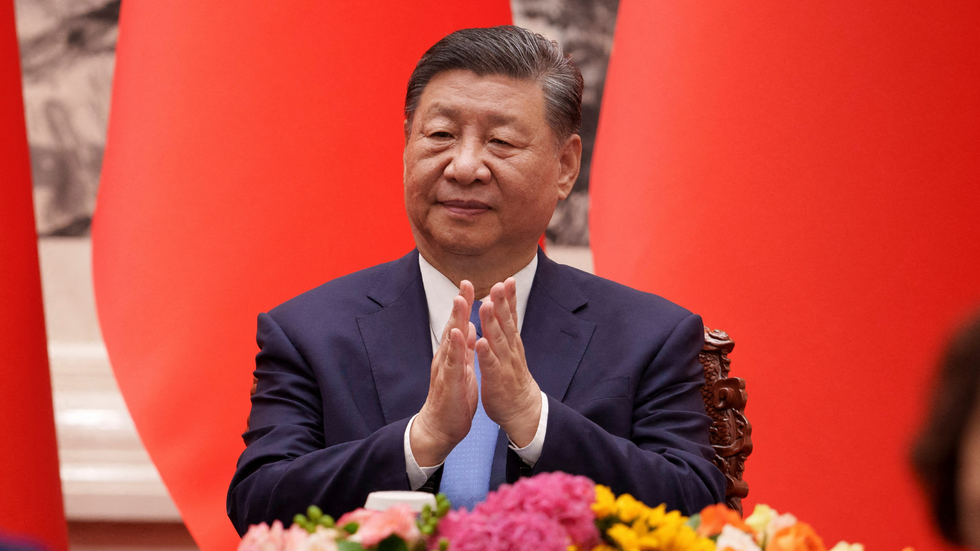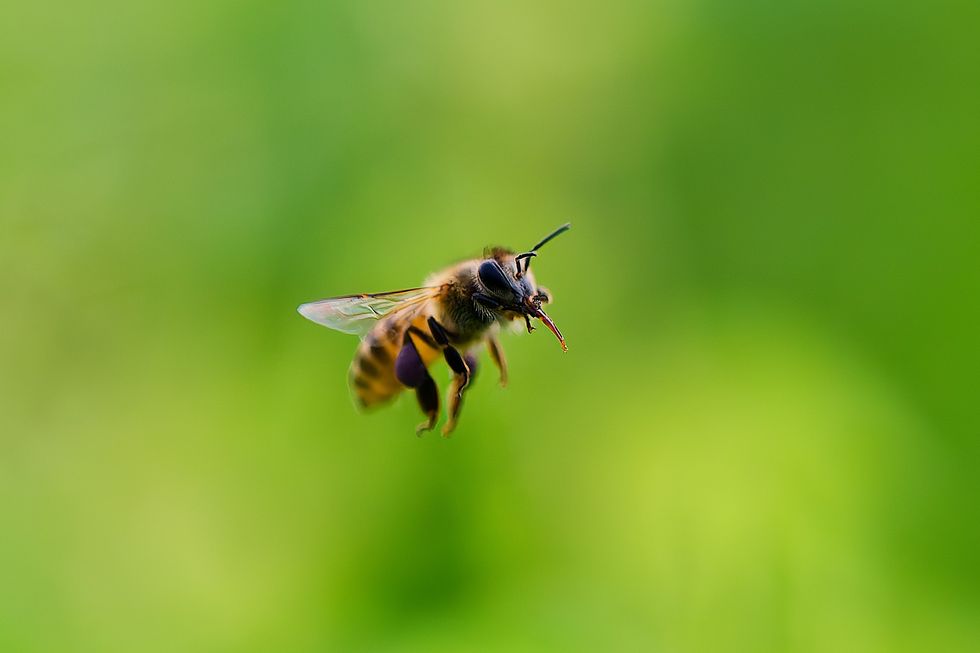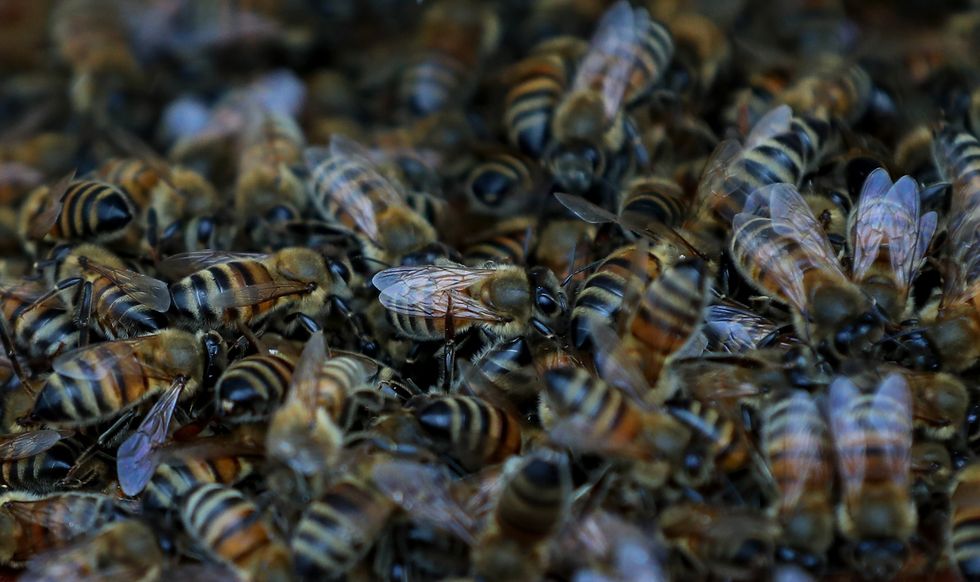China to militarise cyborg bees for covert operations and spying

WATCH: Madeline Grant and Matthew Stadlen debate how far the British Government should be involved with China as Chancellor Rachel Reeves visits the controversial dictatorship
|GB NEWS

Researchers said the insects were 'invaluable for covert reconnaissance' in scenarios like urban combat
Don't Miss
Most Read
Trending on GB News
China is trying to militarise "cyborg bees" for covert operations and spying.
Beijing's scientists are said to be testing out the insects' "enhanced stealth" by inserting controllers into their brains to direct where they fly.
The hybrid winged creatures could be used for covert operations, to search for survivors in a natural disaster, to access out-of-reach locations and even stifle illegal drugs trades.
Beijing Institute of Technology Professor Zhao Jieliang and his team have built the world's lightest insect brain controller - at 74 milligrams, it is lighter than a bee's sac of nectar.

Beijing's scientists are said to be testing out the insects' 'enhanced stealth'
|REUTERS
Nine times out of 10, the cyborg bee obeyed its direction when controlled.
The revelation comes after a peer-reviewed paper was published last month in the Chinese Journal of Mechanical Engineering.
"Insect-based robots inherit the superior mobility, camouflage capabilities and environmental adaptability of their biological hosts," wrote Zhao and his colleagues.
"Compared to synthetic alternatives, they demonstrate enhanced stealth and extended operational endurance."
The team added that it made bees "invaluable for covert reconnaissance" in scenarios such as urban combat, counterterrorism, and intercepting drugs.
They added that it could also offer "critical disaster relief operations".
READ MORE ON THE CHINESE THREAT:
- Chinese electric cars prompt security fears as 'every major defence supplier is concerned about tech'
- China emerges as nuclear superpower as ballistic build-up poses ‘major threat’ to West, Armed Forces chief warns
- 'Deeply concerned!' US issues stark warning to Britain not to allow Chinese 'super-embassy' near London's financial centres

The insects could be used to intercept the distribution of drugs
| GETTYBefore the revelation, the lightest cyborg-type controller came from Singapore - but it was triple the weight of the one used in bees.
The Singaporean model had commanded beetles and cockroaches to crawl in short ranges - but they tired quickly and travelled slowly.
Bees, however, are quicker - and can fly for five kilometres (or three miles) without resting.
Researchers were able to print circuits on polymer film and hosting several chips including an infrared remote to control them, but some flaws remain present.
The insects need wired power, while long-lasting batteries weigh 600mg - which is too heavy.

Bees can travel up to five kilometres without rest
| PAFurther testing also found their legs and bellies refused commands.
"In future research, precision and repeatability of insect behaviour control will be enhanced by optimising stimulation signals and control techniques," Zhao's team said.
"Concurrently expanding functional modules of the control backpack will improve environmental perception capabilities of insect-based robots."
The team said it would advance "their deployment in complex operational settings such as reconnaissance and detection missions".
Cyborg tech has swept across countries who are racing to improve ways of defence - with the US Defense Advanced Research Projects Agency (DARPA) having led the field, closely trailed by Japan.
However, China appears to have overtaken by a fair margin thanks to significant Government funding and a surging electronics industry.
More From GB News










